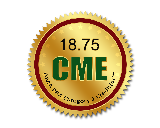
Jason X Cheng
University of Chicago, USA
Title: Identifying chromatin structures and the underlying novel mutations that predict therapeutic responses to epigenetic drugs in MDS and AML
Biography
Biography: Jason X Cheng
Abstract
Drugs targeting epigenetic-modifiers have been shown to be effective in a small portion of patients with myelodysplastic syndrome (MDS) and acute myeloid leukemia (AML), but the mechanisms underlying the efficacy of different epigenetic therapies are unknown. In this study, we performed growth-inhibition experiments with several epigenetic modifying drugs in multiple myeloid leukemia cell lines and identified two distinct lineage/differentiation-associated growth- inhibition patterns. We developed a new method, crosslink-assisted DNA modification immunoprecipitation assay (CDMIA), to simultaneously measure 5-methylcytosine (5-mC) and hydroxymethylcytosine (5-hmC). CDMIAs revealed significantly drug-responsive changes in 5- mC/5-hmC at the promoters of differentiation/lineage-controlling genes such as PU.1/SPI1. Immunoprecipitation experiments demonstrated lineage-specific, drug-sensitive interactions between the PU.1/SPI1 and GATA1 transcription factors and the DNA/histone modifying complexes. Sequential-ChIP and chromatin conformation capture (3C) showed that distinct chromatin structures at the gene locus in a lineage-specific manner. Importantly, novel mutations in TET2, TET3, DNMT3L and PU.1/SP1 were revealed by genome-wide sequencing and confirmed by Sanger sequencing. These mutations correlated with the altered interactions between PU.1/SPI1 and the DNA/histone modifying complexes and predicted the responses to epigenetic modifying drugs. Examination of clinical specimens from patients with MDS confirmed the presence of distinct lineage/differentiation-specific chromatin structures These results demonstrate the importance of functional genomics in the pathogenesis of MDS and leukemia and may identify individual patients who may benefit from therapies with one epigenetic modifiers rather than another.

